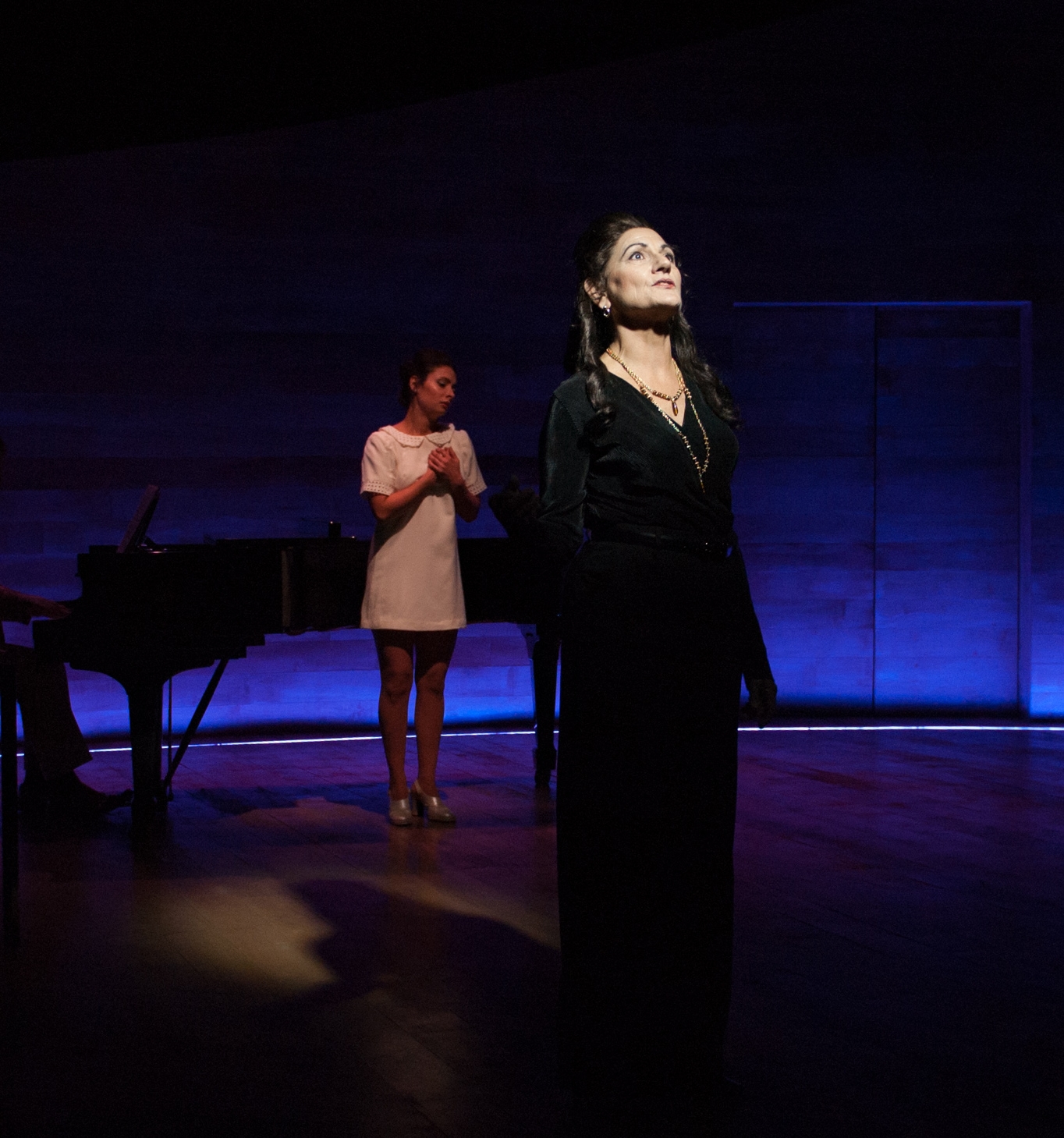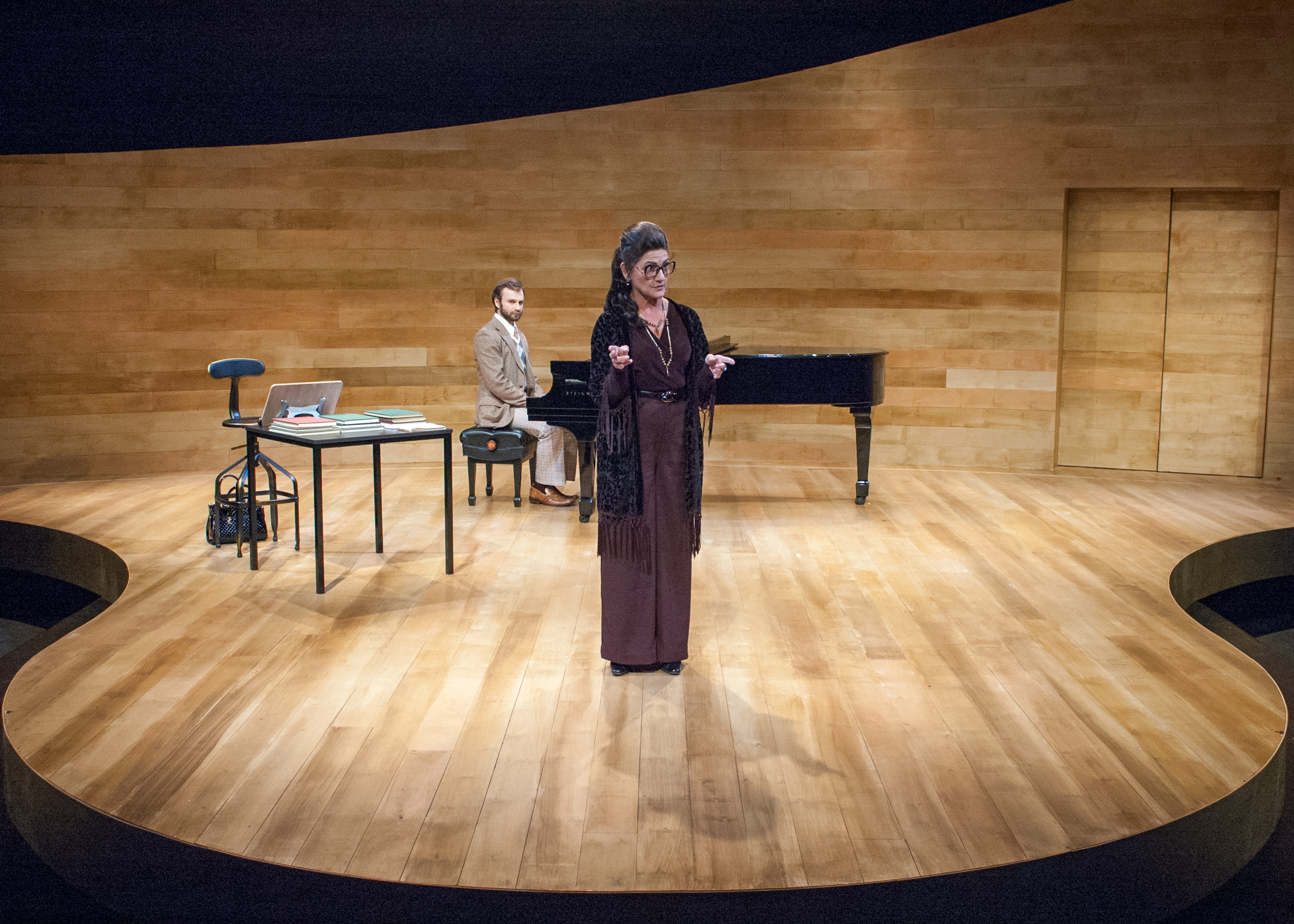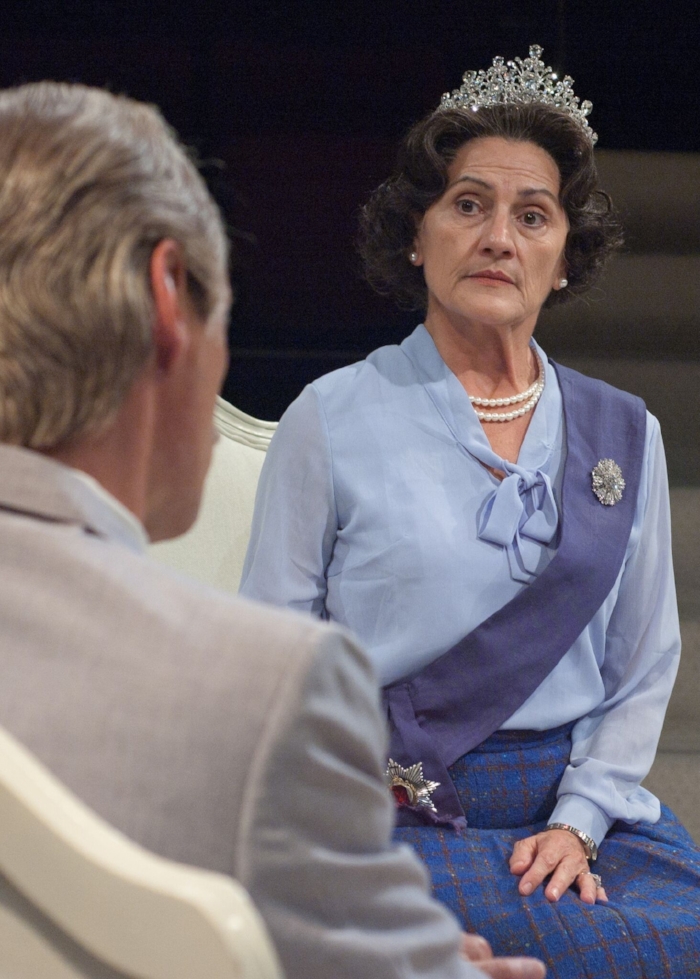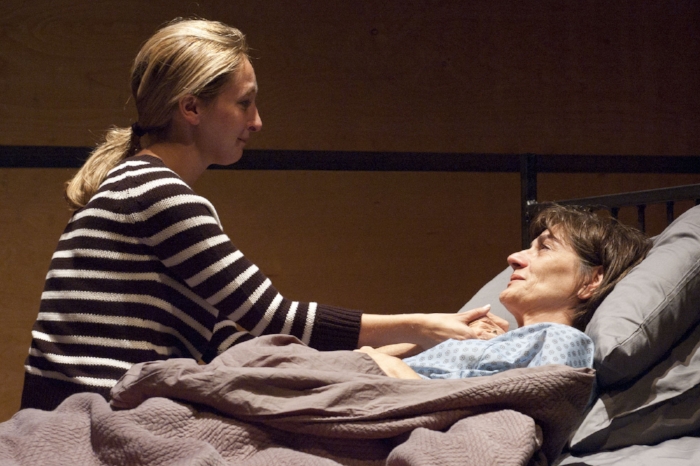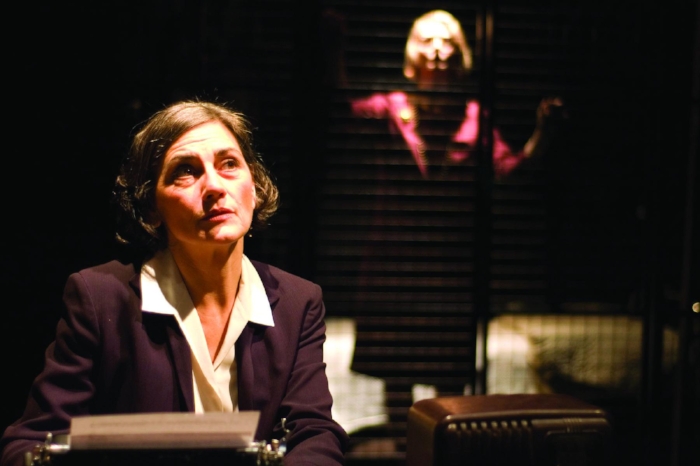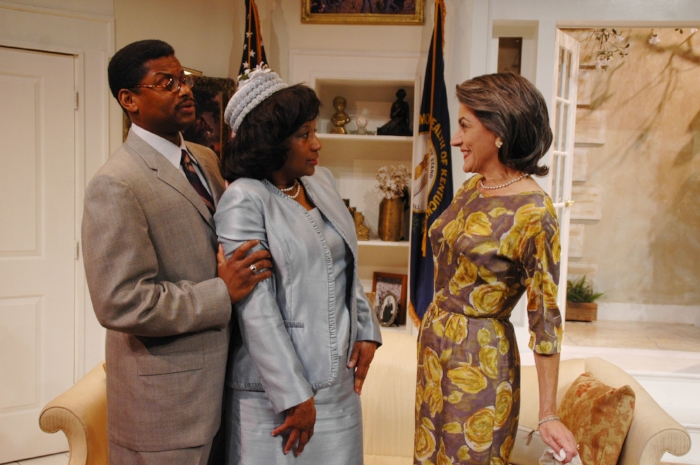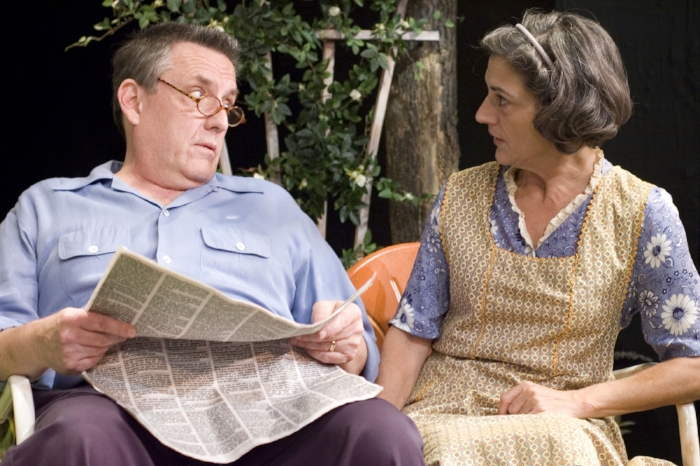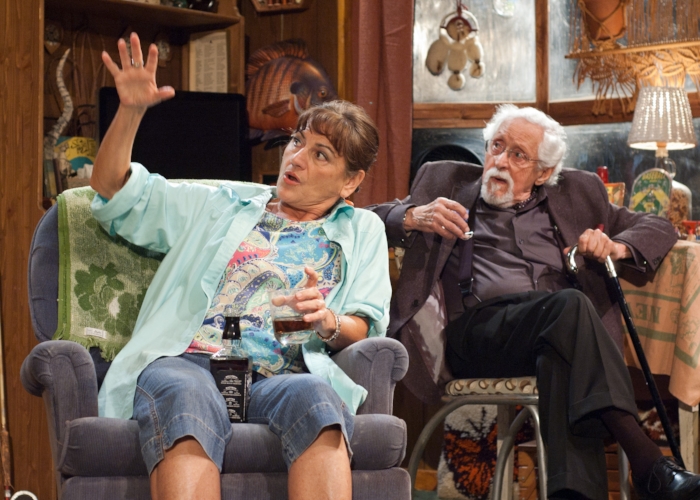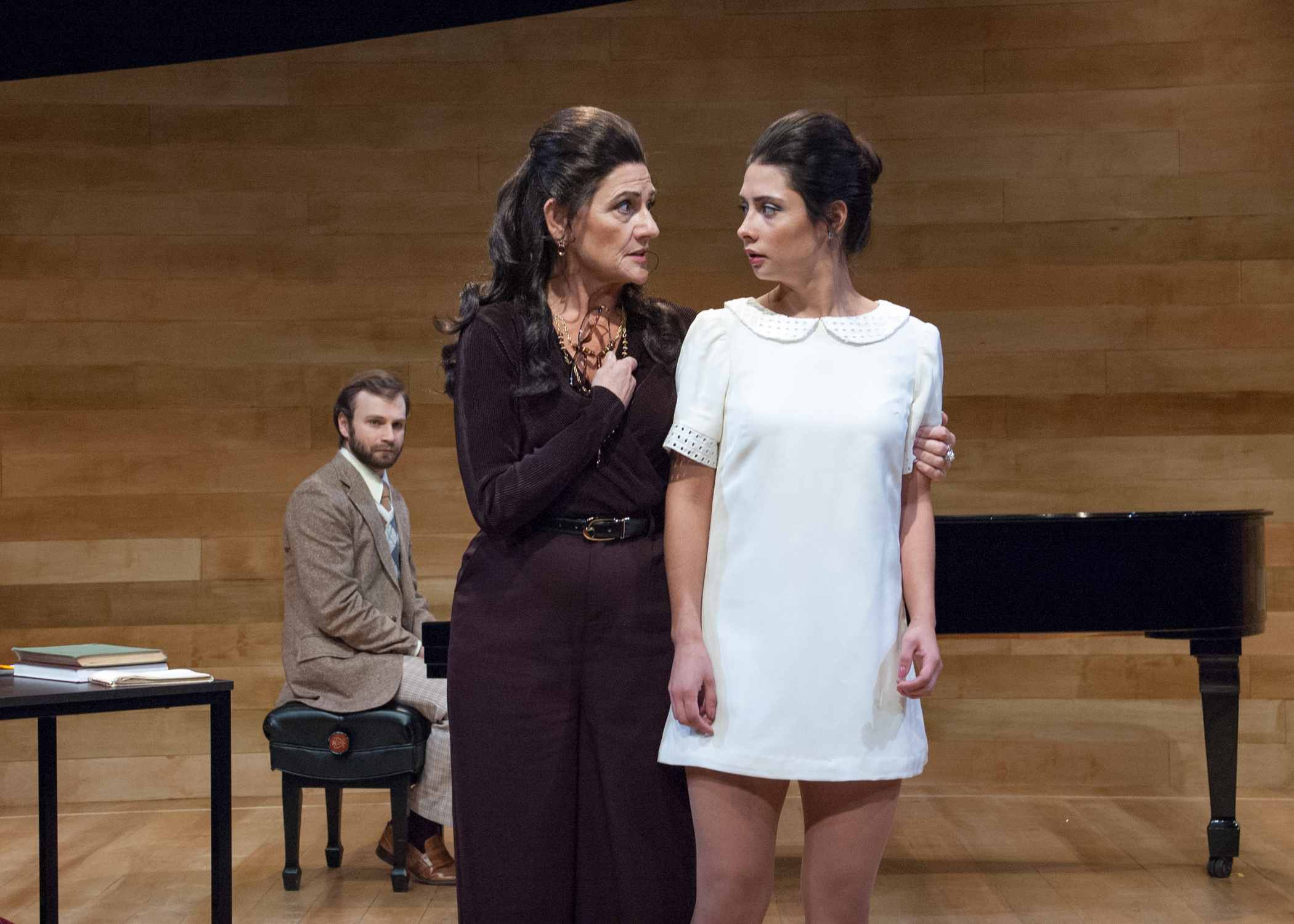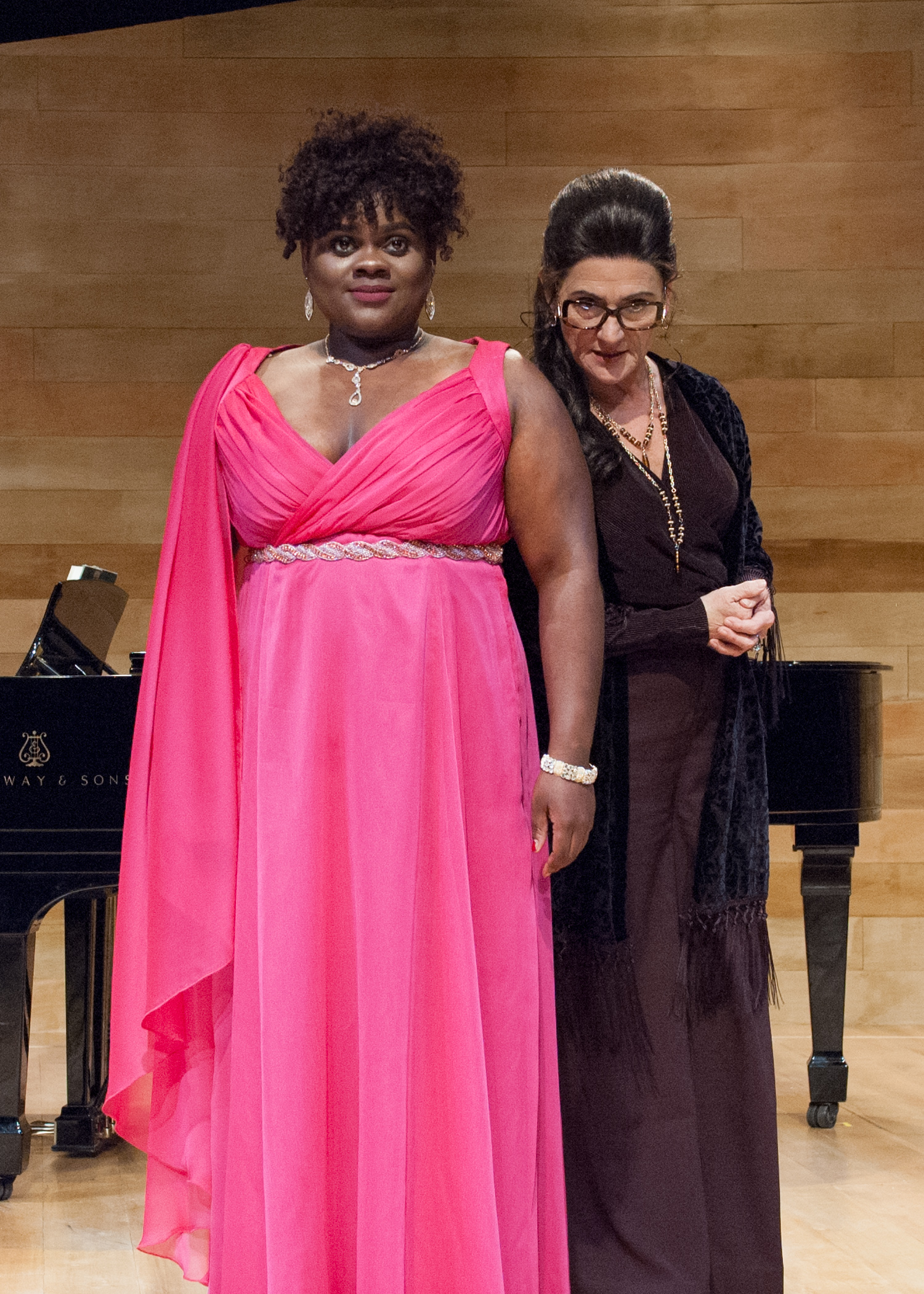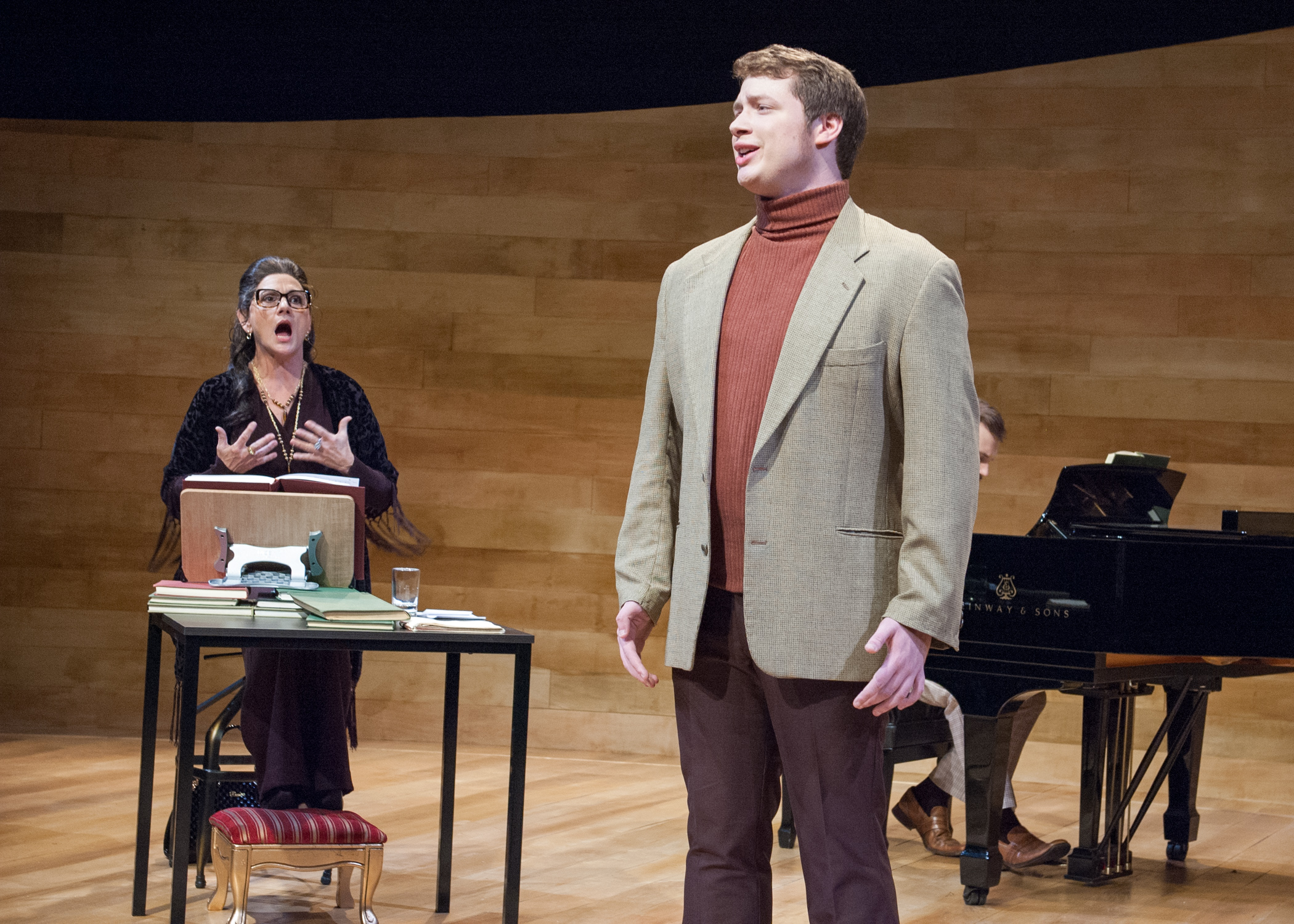JANET ULRICH BROOKS - MASTER CLASS
When Janet Ulrich Brooks decided to bypass a move to Kansas City and land in Evanston, Illinois in 1988, the decision was made in part because of the potential for more artistic work in Chicago’s vibrant theater community. Primarily, she came to help care for her newborn niece, Laura. Looking back on it now she says her role as a nanny was the best day job she ever had.
Kansas City’s loss was Chicago’s gain. Brooks has achieved a remarkable level of success as an actor in the three decades that have passed. She is quick to admit that it has not always been easy, that it takes hard work and more than a few sacrifices.
Brooks toured for over a decade with Child’s Play Touring Company. TimeLine Theatre Company has been an artistic home since 2004 with Jeff Award nominated roles in “Not Enough Air,” “Weekend,” “When She Danced,” “All My Sons,” “A Walk In The Woods,” “33 Variations,” and “The Audience” along with Jeff nominations for her 2018 solo performance of “The Lady With All The Answers at Theater at the Center” and the 2015 Goodman Theatre production of “Vanya and Sonia and Masha and Spike.” Brooks also received a 2016 Helen Hayes Award nomination for Outstanding Lead Actress in a Play for the role of Sandy in “Women Laughing Alone with Salad.” There have been dozens of television and film roles including “Divergent,” “Chicago Fire,” “Chicago Med,” “Boss,” the TV movie “Doubt” and more underway.
Back on stage at TimeLine this season, Brooks stars as the legendary opera diva Maria Callas in Terrence McNally’s “Master Class” now playing at Stage 773 through December 9th. The play, directed by Nick Bowling with music direction by Doug Peck, chronicles a series of public classes conducted by Callas that were held twice a week at The Julliard School from October 1971 to March 1972. McNally framed his 1996 Tony Award-winning play from his experiences attending the classes.
Just how Brooks approached the role and the challenges she had to overcome are at the center of our spirited conversation with one of Chicago’s most gifted actors working in theater, film and television today. PODCAST
Challenges in the role … “Well, there was the Italian … the Greek mixed with the Italian … my dialect work is usually pretty solid …this one was elusive to me for awhile … we kind of came to this dialect two weeks into rehearsal. … The vocal stamina … I've done one-woman shows before and, of course, this isn't a one-woman show, but it's almost like that. It's vocally more challenging in that it's written in a way that at the end of Act I and Act II, I am doing spoken arias, speaking over the music that you're listening to at the same time. So, finding the strength in my voice, having to restrengthen my voice and retrain my throat. I had an injury over the summer, a rib injury that took me out of any kind of a physical activity that I'm used to doing for a couple of months. So, I kind of came into the project not at top physical condition. … I steamed. I had my vocal rest. I'm feeling stronger now. I feel powerful.”
Roll the Silver Dollar! … “People were saying, ‘Are you going to sing!?!’ which does seem odd to people here because they don't know me as a musical theater actor. … in my twenties, back in Missouri, I was more of saloon singer. “Hey! Roll the Silver Dollar!” you know, belting out a tune. But I'm not a trained soprano or Bel Canto singer, of course. … I only have to sing one line, basically, one or two words, and it's supposed to sound bad and it's supposed to be a terrible moment for her. So, when I heard I only had to sing badly, I was like, awesome, I think I can do that. That's my specialty.”
On Maria Callas … “I listened to Maria Callas, late in her life when the critics were saying "‘This is an artistic nightmare!” … I thought she sounded pretty good and the people were cheering … It was really the critics who decided she was done, they just decided she was done and she was done. And that's a frightening thing for a woman who is aging, because we don't like to let women age. … I find her demanding in an artistic way. Discipline. Courage. These are the foundations. This is what she had. And she worked very, very hard to get where she was, to have what she had and made sacrifices along the way in order to have that. She wants to impart that on the students and let them know what it's going to take. There are no shortcuts. This is what it takes.”
Temperamental Diva … “There was already a perception of her being this fiery, horrid person backstage … a temperamental diva. And as I watch all these interviews with her at different times in her life, different ages, I see someone who is passionate about their work and passionate about what they are doing on stage and singularly focused. In one interview, when someone is kind of hounding her about being temperamental, she said, ‘Well, no. I come prepared to work. And if other people come to work and they're not prepared, I act accordingly.’”
Master Class … “The first student, Sophie DePalma (played by Molly Hernández) is more of a Sutherland-type singer … very much about the sound and the tone of the note and not as much about the expression of the words and the biting diction that Maria Callas would use … smiling and singing notes instead of finding the truth of a character situation. A broken heart, and that's what you want to play. Tony ‘Tight Pants’ (played by Eric Anthony Lopez), the tenor … he's done some things and he's feeling pretty good about himself and he just wants to come out and sing and probably have her say, “Oh my God, you are it! Come. Be the next, Pavarotti!” but she kind of breaks him down. She sees through his arrogance. … the fact that he doesn't even know what he's singing about. … Sharon (played by Keirsten Hodgens), the second soprano gets her feelings hurt … leaves for a time and then decides to come back and to bear with the punishment. … She has the voice, she's got the powerhouse of voice.”
Deep feelings … “They all remind me of different parts of my (Callas’) life and different things that have happened over the course of my career … what I'm finding as I get inside the play … there's the learning of the play … the challenges of just memorization and getting to know what comes now. What comes next. But then, within that, it's not just what comes next, but why. There has to be a ‘why’ or there's no journey. There's no growth, there's no soul to the piece. There's no soul to her. And I don't think she's just one level. … I think she's a woman with very deep feelings and a depth of soul and character that a lot of people have not given her credit for.”
Transitions …“The young people who come and see this actually are so much fun because I'm looking at the audience the whole time. They're my students. And, so, I'm working with them all the time and when you get a row of young artists sitting there, they soak up her words. Everything that she says talks about art and what it is and what it takes. There are no easy ways in art. There's no being center stage as if by magic There's always an entrance for us. There's always an exit. Art is about those transitions. I love that one.”
Comments have been edited for length and clarity.
MASTER CLASS|ARCHIVE PHOTOS|Lara Goetsch
THE AUDIENCE|Joe Mazza
TIMELINE THEATRE COMPANY
Presents
MASTER CLASS
through December 9th
STAGE 773
1225 W. Belmont Avenue
(773)327-5252
TICKETS
WEBSITE
Read our PicksInSix Review of Master Class
PODCAST available on iTunes, Libsyn and Stitcher
ARCHIVE DE USURIS BLOG EMAIL WEBSITE SUBSCRIBE


